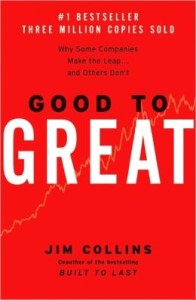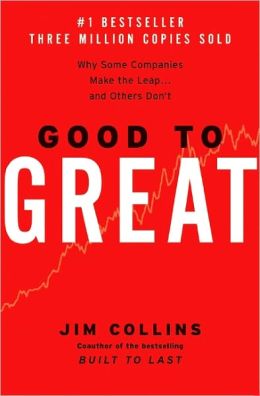Transcending the Curse of Competence
 In his best-selling book Good to Great: Why Some Companies Make the Leap…And Others Don’t
In his best-selling book Good to Great: Why Some Companies Make the Leap…And Others Don’t, Jim Collins writes,
“To go from good to great requires transcending the curse of competence.”
Since when did competence become a curse?
It’s true that many business leaders view competence simply as being acceptable, or ‘good enough’.
The problem, as Collin describes it, is:
The acceptance of good is the enemy of great.
That’s the curse.
Thankfully it is possible to transcend – or rise above – this curse. But first we need to clearly understand the meaning of competence.
The Etymology of Competence
Looking at the etymology of the word competence, it might surprise you that its origin is the same as the word to compete. The Latin word competere means: “to seek or strive together.”
In other words, one who is competent is ready to compete.
This leads to an important question. Who is the competition?
For most businesses, the competition seems obvious. It’s those “other guys”. They are the companies discussed in the hallways, in sales meetings, and even in the boardroom.
- It’s common to hear stories of customers talking about the competitions’ lower prices, higher quality, or better service.
- It’s normal for sales people to complain about the competitions’ sales and marketing tactics.
- Even executives can become overly focused on the competition, studying their every move.
In such environments, more business energy is focused on “beating the competition” instead of improving their own competence. This is why so many good companies fail to become great.
Rising Above the Curse of Competence
It’s fairly easy to recognize when a company is struggling with the curse of competence. Instead of finding ways to expand the overall market pie, they apply all their energy at winning more of the existing pie (e.g. market share).
It’s even evident in their advertising claims.
- “Find a lower price and we’ll beat it!”
- “We have the best selection in town!”
- “More coverage than any other carrier!”
- “More flights to more places than anyone else!”
For some strange reason, it seems acceptable – at least in America – for companies to market their competitiveness as if it’s an advantage.
But the best competitive advantage doesn’t come from competing well with others.
Great companies apply their competitive spirit to competing with themselves.
An obvious example of this is Apple.
The Proven Competence of Apple
 When Apple launched the iPhone, they didn’t mind cannibalizing their iPod sales. It was a natural outcome from improving their level of technical competence. The same was true with the launch of the iPad, cannibalizing the sales of Apple laptops.
When Apple launched the iPhone, they didn’t mind cannibalizing their iPod sales. It was a natural outcome from improving their level of technical competence. The same was true with the launch of the iPad, cannibalizing the sales of Apple laptops.
In both cases, they expanded the market pie.
And the same will likely be true with the recently announced Apple Watch. Except in this case, the Watch won’t replace older Apple technology. It will enhance it, linking it with many new applications. It’s a terrific catalyst for growing new markets, with new players – from retailers to banks, to new yet-to-be-created apps.
Apple has clearly transcended above the curse of competence. As long as they continue competing with themselves, there will preserve their competitive advantage.
What other companies have transcended the curse of competence?
Today’s value was selected from the “Knowledge-Skillfulness” category, based on the e-book Developing Your Differentiating Value.
Click the image below if you are interested in purchasing the book Good to Great (note: this is an affiliate link).








